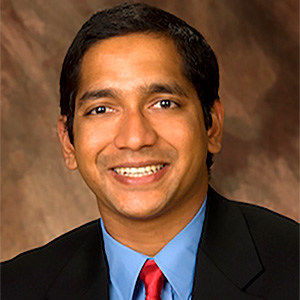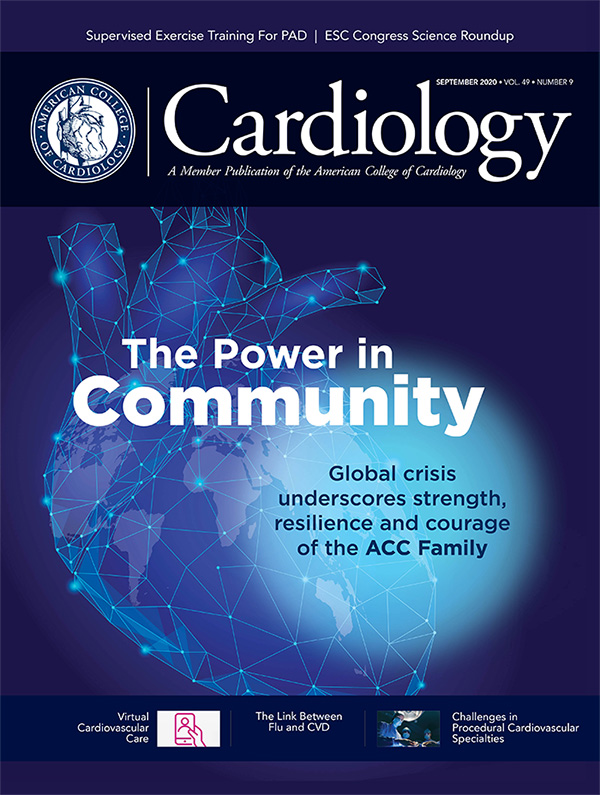For the FITs | Meet Our FIT Section Editor: Mohsin Chowdhury, MD

Mohsin Chowdhury, MD, is an interventional cardiology fellow at the Beth Israel Deaconess Medical Center (BIDMC) in Boston, MA. He earned his Bachelor of Science in electrical engineering from Northern Illinois University and his medical degree from Albert Einstein College of Medicine, where he was the recipient of the AOA Carolyn L. Kuckein student research fellowship.
After completing his internship and residency at Yale New Haven Hospital/Yale School of Medicine, Chowdhury joined BIDMC for his fellowship in cardiovascular medicine and interventional cardiology.
His academic interests include coronary physiological assessment, utilization of artificial intelligence in evaluation of intravascular imaging, and patient reported outcomes measures after coronary and peripheral interventions.
How did you go from studying electrical engineering to studying medicine? In what ways does that education inform and augment your work today?
I started my undergraduate studies as a biochemistry major with the plan to apply to medical school. However, I changed my major to electrical engineering during my first semester after taking an introduction to engineering class. I knew that I wanted to be physician but opted to study electrical engineering as I was drawn by the opportunity to use science to solve everyday problems.
Interested in contributing an article or an idea to the For the FITs section. Reach out to Dr. Chowdhury using @mohsincMD or email cadiologyeditor@acc.org.
Electrical engineering provided me with a solid foundation in problem-solving. My investigative nature and meticulous approach to problem-solving that helped me to succeed as an electrical engineer is also one of the major drivers behind my decision to pursue a career in interventional cardiology.
The physiology of the heart is fascinating, with the interplay of mechanical, electrical and fluid dynamics systems. The heart is a perfect example of masterful engineering. My background in engineering has been helpful in gaining an in-depth understanding of new technology and in utilization of technology in taking care of complex cardiovascular patients.
What are the areas of interventional cardiology that you find exciting?
Interventional cardiology continues to be at the forefront of innovation in medicine. Recently, we have made great strides in all three domains of interventional cardiology – coronary, peripheral and structural interventions.
It is very fulfilling to be able to do almost all of our coronary interventions via transradial access after which patients are often able to go home the same day. Transcatheter valve intervention (e.g., transcatheter aortic valve replacement, edge-to-edge mitral valve repair) is also a very exciting area because we're are able to offer treatment that was only possible through open-heart surgery up until just few years ago.
Describe a great day at work for you.
One of the most exciting parts of interventional cardiology is that no two work days are the same. A great day at work often includes doing a mix of elective and emergency procedures, follow-up of postprocedure patients, and counseling patients about risk factor modifications.
Every intervention and patient encounter in the cath lab offers an opportunity to change the disease course and help patients live longer and healthier. I find it exciting, enriching and immensely satisfying.
What are your clinical interests?
I have been training in all aspects of interventional cardiology with a focus on complex coronary, peripheral interventions and mechanical circulatory support. The flexibility of my training program has also allowed for me to participate in some structural interventions.
What are your research interests?
My current research interests include coronary physiological assessment, utilization of artificial intelligence in evaluation of intravascular imaging, and patient reported outcomes measures after coronary and peripheral interventions. I am also involved in studying the prevalence of rheumatic heart disease in rural Indonesia using tablet echocardiography.
What contributed to your interest in research about rheumatic heart disease? What specifically are you looking at in terms of RHD?
Rheumatic heart disease (RHD) remains a significant cause of disability and premature death in developing nations. One of the biggest barriers to widespread screening for RHD has been the availability of high-quality portable ultrasound technology.
I became interested in studying RHD during my residency training after I took care of a young patient with advanced RHD in whom the progression could have been halted if detected early with appropriate screening.
The project allowed for me to marry my interest in global health with my interest in technology as we utilized a novel tablet ultrasound machine to screen young children in rural Indonesia for clinically silent RHD.
What are your professional goals when you complete your fellowship?
I see myself practicing as a clinical interventional cardiologist and being involved with clinical cardiovascular research.
How has the COVID-19 pandemic shaped your view of delivering cardiovascular care? Your future direction?
At the peak of the COVID-19 pandemic, we saw patients presenting late with life-threatening cardiovascular illnesses including STEMIs and unfortunately saw an increase in post-infarct complications including ventricular septal defects which are usually rare.
Patients were fearful to go the hospital and clinics and we temporarily transitioned to virtual visits for many of our patients. The pandemic also highlighted the disparities present in health care delivery and offers an opportunity for us to work harder to close the gap in health care delivery.
The pandemic also impacted our training as we canceled elective procedures for a period of time. We have utilized this "downtime" to start a very successful regional interventional cardiology teaching conference and further pursued our research interests.
Tell us about your life outside of work. What are your passions and interests? Hobbies?
Outside of work, I enjoy being outdoors and spending time with my family and friends. I love to go hiking and running. Prior to COVID, my wife and I enjoyed travelling around the world and experiencing new places and cultures.
What's your approach to achieving balance between your personal and work life?
I enjoy unwinding at home by spending time with my family. I think the key to finding a balance is to try to block off uninterrupted periods of time on a daily basis to self-reflect, unwind, and attend to personal health and well-being. However long or short this period may be, in the era of so many distractions, I think it's important to carve out undistracted "personal" time.
Clinical Topics: Cardiac Surgery, Congenital Heart Disease and Pediatric Cardiology, COVID-19 Hub, Invasive Cardiovascular Angiography and Intervention, Cardiac Surgery and CHD and Pediatrics, Congenital Heart Disease, CHD and Pediatrics and Interventions, CHD and Pediatrics and Quality Improvement, Interventions and Structural Heart Disease
Keywords: ACC Publications, Cardiology Magazine, Child, Preschool, Fellowships and Scholarships, COVID-19, Pandemics, Internship and Residency, Heart Septal Defects, Ventricular, Schools, Medical, Rheumatic Heart Disease, Universities, Global Health, Mortality, Premature, Risk Factors, Hobbies, Prevalence, Transcatheter Aortic Valve Replacement
< Back to Listings


